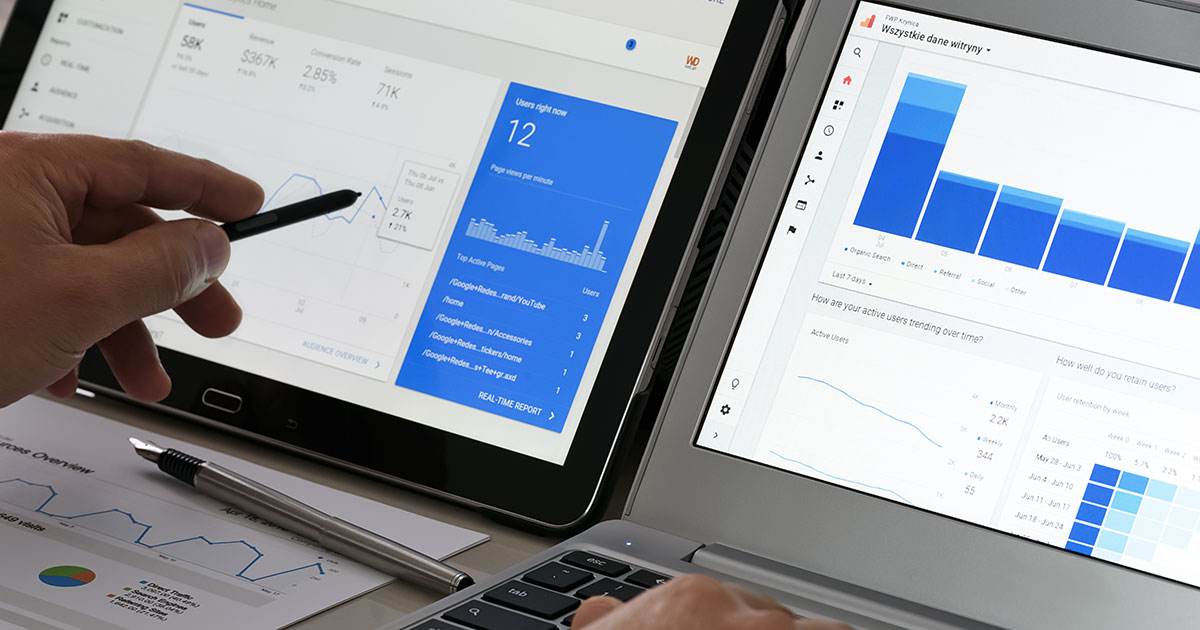April is here and that means you made it through Q1! (Yay!) After having a celebratory toast for all your marketing milestones in the first part of the year, now is a great time to start planning how you’ll assess the success of your digital marketing strategy and see what adjustments you could make in Q2.
In today’s fast-paced business environment, it’s more important than ever to have a solid strategy in place to ensure the success of your business. But how do you measure the success of your digital marketing efforts? How do you know when and where to pivot? This is where Key Performance Indicators (KPIs) come in.
KPIs are the metrics that you use to track the progress and success of your digital marketing campaigns. In this blog, we’ll explore the top KPIs for measuring the success of your digital marketing strategy and how they can help you identify areas for improvement.
So, whether you’re new to digital marketing and starting from scratch or just looking to refresh your current strategy, read on to discover the KPIs that will help you measure the effectiveness of your digital marketing campaigns.
Top Digital Marketing KPIs You Should Use to Measure Success
While there are dozens of metrics you could use to measure the success of your marketing campaigns, there are a few go-to KPIs you should always have top of mind.
- Website Traffic
The total number of visitors to your website over a given period of time. This KPI is a good indicator of how well your website is performing and how many people are engaging with your brand.
- Organic Traffic
The number of visitors to your website who found you through organic search results, i.e., not through paid advertising. This KPI can help you measure the effectiveness of your SEO efforts and the quality of your website’s content.
- Paid Traffic
The number of visitors to your website who clicked on one of your paid ads. This KPI is important for measuring the effectiveness of your online advertising campaigns, such as Google Ads or social media ads.
- Cost Per Click (CPC)
The average cost you pay each time someone clicks on one of your ads. This KPI is a good indicator of how much you’re spending on your advertising campaigns and can help you optimize your ad spend.
- Cost Per Lead (CPL)
Refers to the cost of acquiring a new lead, which is someone who has shown interest in a product or service by taking an action such as filling out a form or downloading a whitepaper. This KPI is important for measuring the effectiveness of lead generation campaigns.
- Click Through Rate (CTR)
The percentage of people who click on one of your ads or links compared to the total number of people who saw the ad or link. This KPI measures the effectiveness of your ads and can help you identify areas for improvement.
- Conversion Rate
The percentage of website visitors who take a desired action, such as making a purchase or filling out a contact form. This KPI is critical for measuring the effectiveness of your website and your overall digital marketing strategy. By tracking your conversion rate, you can identify which parts of your website and marketing funnel need improvement and make data-driven decisions to optimize your performance.
What Makes a KPI Effective?
An effective digital marketing KPI should be aligned with the overall marketing strategy and business objectives. It should be measurable, relevant, and timely, and provide meaningful insights into the performance of your internet marketing efforts.
For instance, an effective email marketing KPI could be the click-through rate (CTR) of your email campaigns, which indicates the percentage of recipients who clicked on a link in your email.
Similarly, an effective social marketing KPI could be the engagement rate of your social media posts, which measures the number of likes, shares, and comments relative to the number of followers or impressions.
By choosing KPIs that are relevant to your business and marketing goals, you can track progress over time, identify areas for improvement, and optimize your digital marketing strategy for maximum impact.
Why It’s Important to Define Digital Marketing KPIs
Defining digital marketing KPIs at the forefront of strategic planning is crucial for businesses to measure the effectiveness of their marketing strategies and achieve their goals. Establishing which KPIs you will focus on will help influence every step of the digital marketing process.
It’s important to define your KPIs early so that as you launch campaigns, your KPI metrics will provide you with insights into how your marketing efforts are performing, where improvements are needed, and where adjustments need to be made.
With the constantly evolving digital landscape, it is important to adjust your marketing strategy throughout the year to pivot and redefine KPIs as you begin to measure results. For instance, SEO and advertising KPIs may need to be modified as search algorithms change or as new ad formats become available.
Similarly, marketing KPIs may need to be adjusted to accommodate changes in consumer behavior, emerging technologies, or new market trends. By redefining KPIs and making strategic adjustments, businesses can stay competitive and relevant in today’s dynamic digital marketplace.
Proactive Strategy is the Sail that Drives our Ship Forward
While your digital marketing strategy is the key to defining your business’s goals and success measurements, it should never be firmly set in stone. You should incorporate time throughout the year to measure your results against your initial KPIs and see where you may need to make adjustments.
At fishbat, we strive to create innovative digital marketing strategies that are built not only to succeed but to adapt to the changing flow of business needs. Marketing isn’t one-size-fits-all. We recognize that in order to garner the results you want, we have to build proactive strategies that put your best interests first while remaining agile and open to change.Contact us today to see how we can partner together to define the KPIs that are most important to your business.



